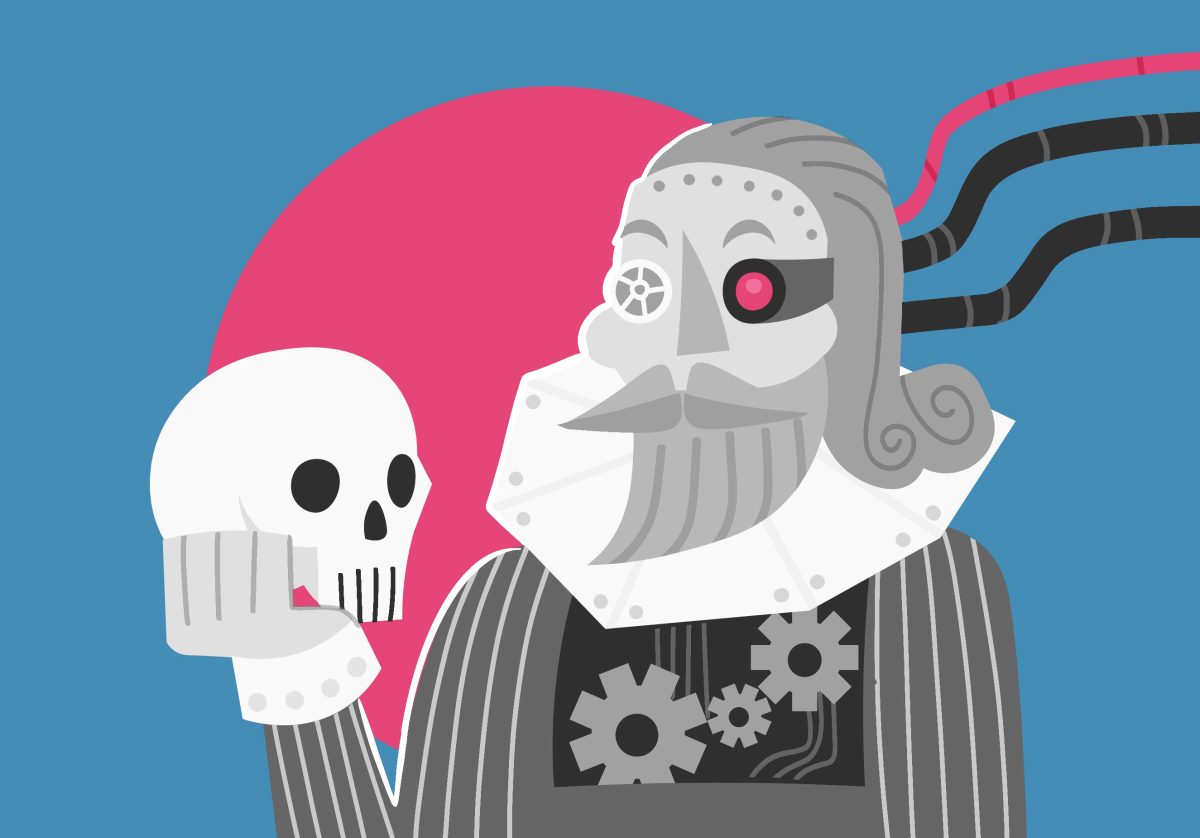As artificial intelligence (AI) becomes increasingly prevalent on college campuses across the country, members of the University of Minnesota’s English department were put to the test to distinguish students from machines.
A professor, lecturer and graduate student were presented with two versions of the same paragraph-length biography of Shakespeare, one was written by AI and another by The Minnesota Daily reporter Logan Anderson. Elements of both were mixed to make it more difficult to tell them apart.
All chose correct, citing sentence structure and odd phrases as red flags that led to their decisions.
Option one (AI-generated):
“Born in 1564 in Stratford-upon-Avon, England, William Shakespeare is renowned as one of the most influential playwrights and poets in history. His works, including ‘Romeo and Juliet’ and ‘Hamlet,’ explore the human experience with unmatched depth. Shakespeare’s legacy transcends centuries, shaping literature, theater, and language worldwide. He passed away in 1616, leaving behind a timeless body of work that continues to captivate audiences to this day.”
Option two (Logan):
“William Shakespeare, born in Stratford-upon-Avon, England, in 1564, is celebrated today as one of history’s most influential playwrights and poets. Some of his most notable works include such recognizable titles as ‘Romeo and Juliet’ and ‘Hamlet.’ Shakespeare’s legacy can be felt today in literature, theater, and in the English language. After his death in 1616, he left behind a body of work that continues to impact audiences around the world centuries later.”
The results
Jake Lancaster, a lecturer, said he suspected option one of being written by AI.
“The first one just has this level of expertise about it,” Lancaster said. “It has this Britannica-style prose to it.”
According to Lancaster, the opening sentence of option one is structured in a way that he would not naturally see coming from undergraduates.
“The second one begins with the subject and the noun. It says William Shakespeare,” Lancaster said. “Most students wouldn’t begin to write, ‘Born in 1564 in Stratford-upon-Avon, England.’”
Another element that tipped Lancaster off was specific words and phrases, such as “transcend,” “timeless” and “explore the human experience at an unmatched depth.”
“People don’t speak that way and people don’t really write that way,” Lancaster said. “It’s just too elegant and fake.”
Lancaster said he noticed patterns in how students write and how AI writes after reading so many papers. According to Lancaster, papers written by AI are typically vague and lack textual citations, such as specific details about stories or characters.
“What I look for is what actually happens to the character,” Lancaster said. “An AI paper will say he learns how to overcome great difficulties and learns who he is through many trials and tribulations and ultimately triumphs. That would be the gist of it, and that would be written for six pages.”
Aamina Ahmad, an assistant professor specializing in creative writing, said she was unsure between the two but finally chose option one.
“It had these slightly over-the-top generic things like ‘unmatched depth,’ ‘timeless’ and ‘transcend’ which just felt a little bit generic,” Ahmad said.
However, Ahmad said first-year writing essays can read as over-the-top sometimes, which she said can happen when essays are pieced together from different internet sources.
Ahmad identified the structure of option one’s first sentence as part of why she thought it was written by AI.
“The first one has that weird construction in the opening sentence,” Ahmad said. “That felt to me like a very unlikely sentence construction. Generally, you tend to start with your subject.”
Addison Cox, a first-year graduate student pursuing a doctorate in English, said she thought the first option was made by AI because of a few awkwardly written parts. One part that jumped out to her was that the first sentence began with the year Shakespeare was born.
“When people are starting a sentence about where someone is born, they don’t really start with the year unless they’re emphasizing the time period, which isn’t really what’s happening here,” Cox said.
Another part that was awkwardly written, according to Cox, was the very last sentence, which she said had a strange ring to it.
“There’s much more than that, but this is also just, like, vibe-based,” Cox said.
According to Cox, there’s a general feeling to AI writing that is not how people naturally speak or write. One way to distinguish it is to read it aloud.
“It almost never sounds at all natural,” Cox said. “If I was talking to someone and they said these things out loud, I’d be like, ‘What are you thinking about right now? Because it’s not Shakespeare, clearly.’”
According to the Office of the Executive Vice President and Provost, classroom policy related to AI varies class by class, with different degrees of AI-friendly syllabus statements available for instructors to choose from.


















